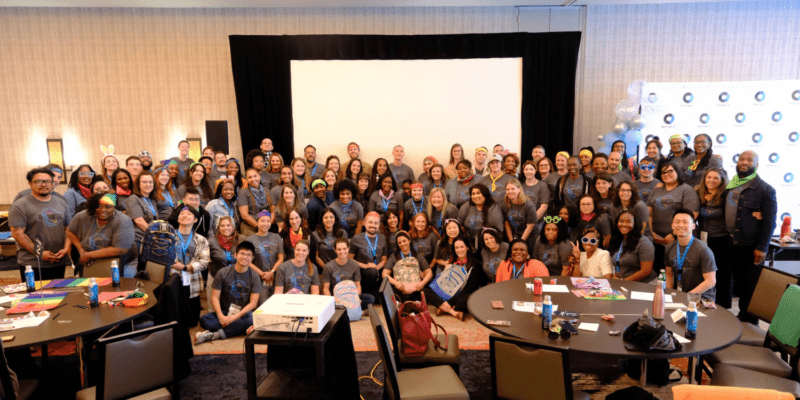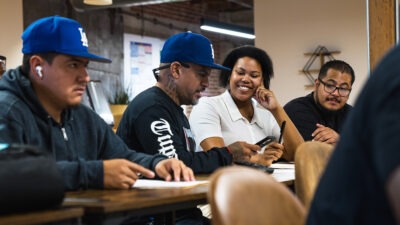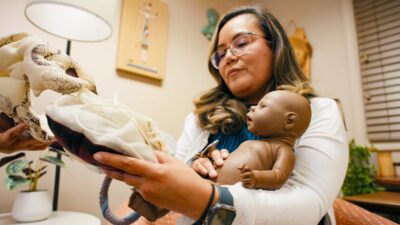Whether the experience involves an individual, organization or community, lasting transformation takes place from the inside out. For the next several weeks, we’re pulling lessons from our new Racial Equity Spotlight series. This set of three publications gives an insider’s view to a wide variety of WKKF grantee partners who are committed to transforming their internal practices and ways of being to strengthen their work in support of children and families.
In Brief
Founded in 2016, Teaching Lab is a nationwide education nonprofit organization dedicated to fundamentally shifting the paradigm of teacher professional learning in pursuit of educational equity. By collaborating with leaders to foster supportive instructional approaches and building a teacher-led network, Teaching Lab aims to transform professional learning for teachers to improve student outcomes. Supporting over 5,000 educators across 30 school systems in the United States, the organization is committed to creating a world where teachers and students thrive together in communities that support lifelong learning.
From its inception, Teaching Lab’s founders have aimed to embed racial equity in its external partnerships and internal operations. Teaching Lab’s story showcases an “all in” effort that offers insights and encouragement for those seeking to operationalize and institutionalize racial equity within their organizations.
Why This Matters
Bringing in an external partner (45 Lemons) with an anti-racist organizational development approach, Teaching Lab organized conversations that uncovered what staff members needed to push forward and share their racial equity work. These efforts have helped Teaching Lab create a shared language around racial equity, foster a culture of accountability and begin to address inequities.
COO HaMy Vu emphasizes the importance of this internal work, saying, “We’re not going to make the impact that we want to see in schools and in students if we don’t make sure that our team is set up, is continually learning, is supported, that we are growing as a culture, that we are continually bringing on the best people and training the best people.”
Teaching Lab also launched several initiatives to put equity into action, including racial affinity groups, an intersectional group for Black women and executive coaching for organizational leaders. The organization has also embedded racial equity within its operations, setting goals for staff diversity and implementing a redesigned compensation system that eliminates discrepancies based on race or gender.
By openly sharing their journey, including challenges and successes, Teaching Lab provides a road map for others seeking to institutionalize racial equity within their organizations. CEO Sarah Johnson reflects that while they can “have words on a page,” real change happens when “people are doing things with them.” This hands-on approach to operationalizing equity has served Teaching Lab well, ensuring that they’re fostering a more equitable and inclusive education landscape.
The Opportunity
For organizations looking to embark on a similar journey, Teaching Lab’s experience offers valuable insights:
- Engage external partnerships in the initial stages to build capacity and establish frameworks, then focus on internal capacity building;
- Empower staff through affinity groups and equity-focused task forces, ensuring equal participation opportunities across all levels;
- Commit to reflective practices and continuous adjustment based on staff feedback and societal changes;
- Invest in leadership training that focuses on self-awareness, bias recognition, and equity-driven decision-making;
- Establish feedback mechanisms like surveys and group discussions to guide organizational policies and maintain engagement on sensitive topics.
As Teaching Lab’s journey demonstrates, this work requires ongoing investment, adaptability and a steadfast belief in the process. By taking steps to embed equity, organizations can create lasting impact and contribute to a more just and equitable society for all children and families.








Comments